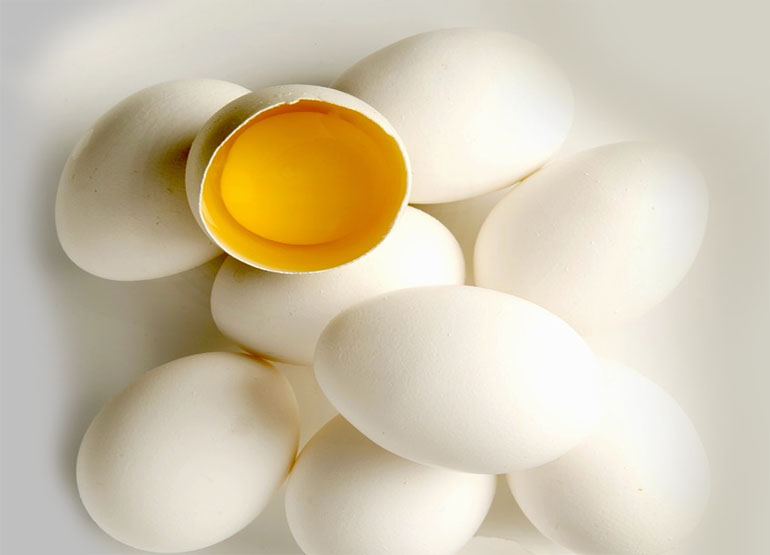Health Pages
Substituting Egg Whites for Whole Eggs
Substituting Egg Whites for Whole Eggs
Eggs may have a bad reputation for their fat and cholesterol content, but they can be included as part of an overall healthy balanced diet. Whole eggs are the major source of cholesterol in most people's diets. If you are concerned about consuming too much cholesterol and fat from eggs, below are alternatives to whole eggs that are much lower in fat and cholesterol content.
In most egg-based recipes, you can substitute 1 or 2 egg whites for a whole egg. If a recipe calls for 2 eggs, you can replace the 2 whole eggs by 1 whole egg and 2 egg whites, for example in meat loaf, hamburgers, pancakes, quick breads, muffins or salad dressing.
Where a recipe calls for 2 egg yolks, use 1 whole egg instead, if you wish. For scrambled eggs, you can use 1 whole egg and any number of whites.
EGG SUBSTITUTE RECIPE
This natural egg substitute can be used to replace 2 or 3 eggs in most recipes.
Ingredients:
3 egg whites
1/4 cup skim milk
1 tablespoon skim milk powder
1 teaspoon olive or vegetable oil
Pinch of turmeric
Directions:
1. Beat egg whites lightly with a fork.
2. Stir in milk, milk powder, oil and turmeric, beating until well blended.
3. Use as needed.
Makes about 6 tablespoons (90 mL.)
ABOUT THE AUTHOR
© Maya Gavric, entrepreneur, consultant, freelance writer, web developer, artist, former realtor, and marketing coach has been working, researching and reporting on the Internet for years. Her numerous articles and books offer valuable insight and tips on wide variety of topics. In recent times she has paid particular attention to knowledge management on the Internet, health topics and environmental problems, exploring how our attention to hot issues might best transform current situation into better practice. For more health tips and info visit: Romwell Health Pages
NOTE: You have permission to publish this article "as is" (unedited) in ezines, electronic publications, web sites and other media format, as long as the article is used in its entirety including the resource box, all hyperlinks (html clickable) with full references and copyright info.



